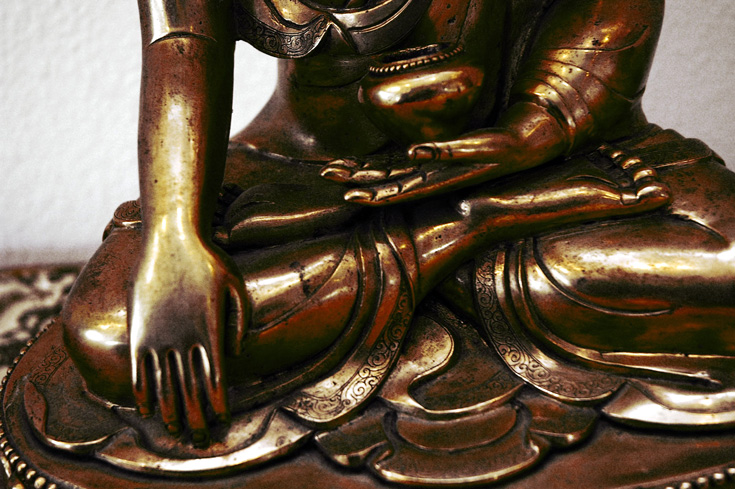Patience (Sanskrit: ksanti; Pali: khanti) is one of the essential virtues cultivated in Buddhist practice. It is one of the six (or ten) perfections, or paramitas, that bodhisattvas work to develop and is key to accomplishing on their path.
Patience is viewed as the antidote to anger and aversion—causes of suffering that, along with grasping, constitute Buddhism’s three poisons that obscure one’s natural enlightenment. The cultivation of patience is usually a by-product of mindfulness and meditation practice, helping practitioners to be more conscious of and skillful with emotional responses to difficulties.
Buddhism highlights the value of patience in a variety of contexts, including:
Patience with Suffering
We can respond to suffering without becoming agitated or disturbed. The idea is to cultivate a sense of equanimity toward one’s own suffering and an understanding of the nature of suffering and the impermanence of all phenomena. The bodhisattva perseveres through and despite the suffering of samsara, not wavering from their conviction to liberate all sentient beings from this suffering.
Patience with Others
When others behave harmfully, we can choose to maintain composure, reflecting on the transient nature of emotions and the interdependent nature of all beings, and not allowing anger to take hold.
Patience with the Dharma
Taking the time and effort to understand the teachings of the Buddha and the complexities of the path to enlightenment is important to staying on the dharma path.
Related Reading
Patience Isn’t Passive
Constance Kassor explains why patience isn’t a passive tolerance of harm. Instead, patience requires a recognition of the deep interconnectedness of the world and an active engagement with it.
The Answer to Anger & Aggression is Patience
We can suppress anger and aggression or act it out, either way making things worse for ourselves and others. Or we can practice patience.
Buddhism A–Z
Explore essential Buddhist terms, concepts, and traditions.



